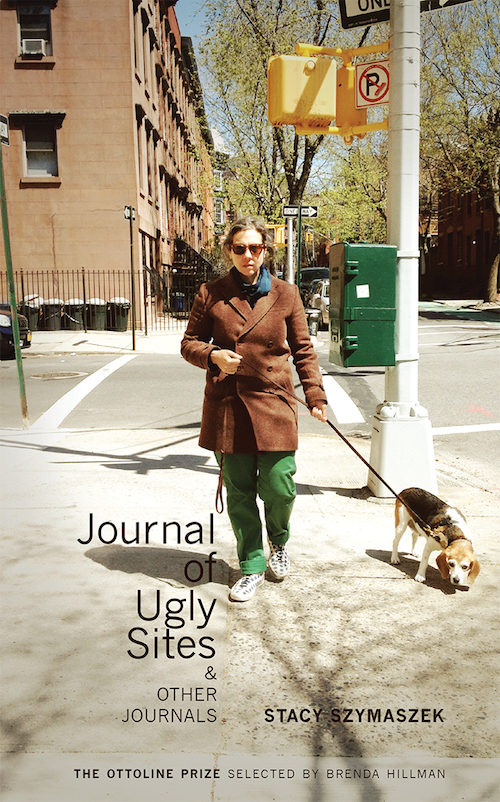Poetic Journalism With Stacy Szymaszek

While we were snoozing, over at the Rumpus Brandi Homan was hitting the beat and getting the story on Stacy Szymaszek's latest book from Fence, Journal of Ugly Sites & Other Journals. Their conversation dives into JOUS and looks at the book from many angles, from the book's genesis to its place in Szymaszek's oeuvre. We'll start with a look at what Szymaszek means by "poetic journalism":
Szymaszek: I like to think of my practice, for my last three books (one is still forthcoming), as poetic journalism versus poetic journals because I think the -ism emphasizes that it is meant for publication. I wasn’t keeping a blog where I could publish the writing daily (though that would have been interesting in retrospect). But when I was invited to read during those years [writing these books,] I would always read the thing I wrote that day or the day before. It’s my beat reporting on the topic of my existence as a queer poet in NYC in the 21st century, most broadly.
There was a moment when I started writing hart island where I had to make the decision to approach it as a research project or something else. I had to do some reading about the place Hart Island, which is a potter’s field in Long Island Sound, to actually learn about its past and present. Then, the more compelling thing to me was using my experience at The Poetry Project as a counterpoint—so it became a kind of “work book” or day book. What I did end up using as source material were words that I had transcribed in my notebook from the mouths of poets, quotes from the readings I hosted at The Poetry Project, which I identify at the end of the book. I also honestly felt like I couldn’t do Hart Island justice in terms of representing the amount of grief and injustice, so it felt most responsible to rely on my own subjectivity.
For ye Bernadette Mayer readers, you may recognize the reference to Mayer's writing prompt. A little more:
Rumpus: The more I read the poem “Journal of Ugly Sites,” based on [Bernadette] Mayer’s writing prompt for a “journal of ugly sights,” the more I love it. Can you speak more to the writing process for this poem—specifically, what constituted “ugly”? How did you decide what to include, what to leave out? Where did you draw the line between personal versus public?
Szymaszek: I kept that journal for a year, as you know. Within that time I did take notes nearly daily. I would amass notes and then sit down with the notes, quite frequently but not daily, and work them up into the poem. Not everything made it of course, and that poem is the most edited poem I’ve ever written. I cut out about ten pages as I prepared it for publication. Ugly is a state of mind. Ugly is also that which is not beautiful, so, also, what constitutes beauty? When I tried to keep a journal of beautiful sites I got nowhere so this poem is my engagement with that “opposition.” My ethic for the poem was, I think, just the way I try to conduct myself as a person. I didn’t want to be mean-spirited or violate anyone’s trust. My partner only vetoed two lines. I sent the manuscript to friends who are in it often just to get “clearance.” I had never dropped names in poems before, or written so intimately, so I was nervous, especially about my family’s response to “5 days 4 nights,” but they’ve been great. My people have been very generous.
Keep on reading over at the Rumpus.


